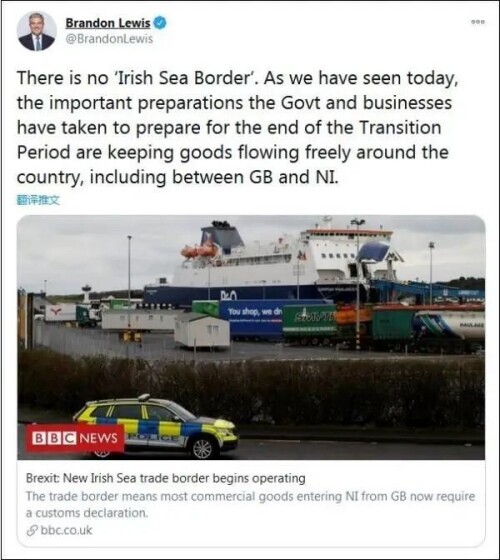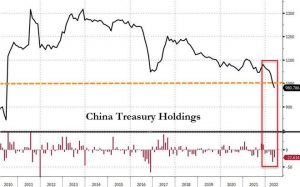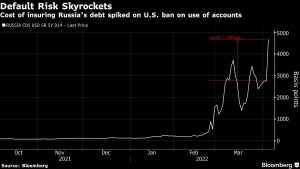
After four and a half years of negotiations and negotiations, the UK finally “left” the European Union at 11pm local time on December 31, 2020. In the coming year, the UK will witness the effects of Brexit.
Of the four political entities in the United Kingdom, Northern Ireland is most deeply affected. The border dispute between Northern Ireland and Ireland in the “Brexit” talks is likely to push Northern Ireland towards Ireland. Spurred on by Northern Ireland, calls for independence are growing louder in Scotland, where Nicola Sturgeon, the first minister, recently tweeted about the EU. In Wales, too, the failings of Labour bosses and the ruling Conservative party are evident.
2021 will be a “big year” for the UK, British chancellor Boris Johnson wrote on Twitter on Jan 2. “2021 could see the UK torn to shreds,” CNN said in a scathing post.
CNN: 2020 strained Britain’s social fabric, 2021 will probably tear it to shreds
Scotland: A very dangerous landmine
Scotland’s self-reliant campaign has continued since the 2014 referendum, when Scots voted 55 per cent to remain in the UK. But according to a recent poll of voters in The Scotsman, the PARTY now leads by 16 points.
According to CNN, this level of support is largely due to Scotland’s opposition to Brexit. In reality, just as Mr Johnson was celebrating the conclusion of trade talks with the EU, Nicola Sturgeon, Scotland’s first minister, tweeted on 24 December last year: “No talks will make up for what brexit has done to us. It is time to plan our own future as a self-reliant European nation.”
Within minutes of the brexit vote taking effect on January 1, Sturgeon called out the EU, saying Scotland would be readmitted “very soon”.
“Europe, Scotland will come back very soon. Leave us the light.” “Sturgeon wrote, along with a face and picture. Just after midnight on January 1 in Brussels, Britain officially left the European Union.
CNN: 2021 is likely to see the UK’s case
For Mr Johnson, 2021 will be a “minefield of traps and landmines”, according to CNN’s attack. The most ominous landmine is the Scottish Parliament’s election in May.
The pro-independence Scottish National Party has dominated politics since the referendum in 2014. The SNP may have lost ten points in the polls in 2015, but they may have won 56 of Scotland’s 59 parliamentary seats. They had another success the following year, when 62 per cent of Scottish voters voted to remain in the EU. Since then, Scotland’s response to being dragged out of the EU has been fierce.
Nicola McEwan, professor of territorial politics at the University of Edinburgh, countered: “Brexit must have boosted support for self-reliance. You can expect that sentiment to rise if the Conservatives’ Brexit policy results in food shortages, economic collapse and a decline in Britain’s place in the world.”
CNN reckons that if the SNP’s self-reliant campaign wins the election in May, Mr Johnson may have only two options: to continue to ignore calls for a referendum, or to test against the SNP. But in the wake of serious COVID-19 and other questions about Brexit, British old-school types worry that Johnson may not have the spirit or passion to tackle the question.
Northern Ireland: Doubts remain as brexit intensifies
Northern Ireland is a political entity in the United Kingdom and borders the Republic of Ireland, a member of the European Union, CNN reported. But in the current Brexit talks, the prospect of a customs border has fuelled concerns about everything from the flow of goods to the violence of the last century.
In 1922, after independent action, the liberated State of Ireland and the United Kingdom signed the Anglo-Irish peace talks, formally leaving the United Kingdom, but Northern Ireland or the United Kingdom. Thus, the dividing line between the two places becomes the border, and goods and trade across this border are subject to differentiated taxes and duties. Moreover, the establishment of customs posts at the designated crossing points has created great difficulties for the exchange of goods between the two places.
From the 1960s to the 1990s, the Irish public was divided into unionists and Nationalists, who fought a series of armed debates over the preservation of Britain. It was not until 1998 that the Governments of Britain, Ireland and Northern Ireland signed the Belfast Peace Talks.
The tension is that neither side has agreed to a “hard border” between Northern Ireland and the Republic of Ireland, with checkpoints and sentries, and that the exchange of staff between the two sides does not require any customs procedures, lest Northern Ireland’s dominant powers once again frustrate these targets. In 2005, the last border control station between the two countries was removed.
However, Brexit has inevitably affected the relationship between Northern Ireland and Ireland. The BBC looked back and said that from the beginning of the “Brexit” process, the UK will leave the PURE environmental trend of the EU, and will implement the EU tariff demarcations in ports. That means “there has to be a hard border somewhere.”
In December, in an attempt to equalise a hard Brexit and a soft Irish border, the UK “implicitly” suggested that Ireland’s maritime border could be dealt with in one way. In the end, Mr Johnson brokered a compromise that would allow the Northern Ireland region to remain in the EU, eliminating the need for a “hard border” between Northern Ireland and Ireland, while shifting the customs process for eu environmental trend goods into Britain to the Irish sea.
CNN: 2021 is likely to see the UK’s case
Labour MP Andrew Gwynne commented on twitter in 2018 about the “sea border” question
Including the “sea border”, Brexit has gradually pushed Northern Ireland closer to the Republic of Ireland. On trade, people’s rights and education issues, the separation of the Brexit talks has created a very different experience between Northern Ireland and the rest of the UK, the BBC said.
From the perspective of people’s rights and interests, people in Northern Ireland will keep the identity of the UK and the EU, which means they have the right to free activities and live in the EU. Educationally, Students from Northern Ireland have a continuous interest in the EU’s exchange student Eramus decision.
It is worth mentioning that the Irish government recently revealed that it will provide financial support for the continued inclusion of Northern Ireland in the “Iramos”. Elsewhere, the Irish World newspaper said Ireland would fund Northern Ireland’s continued entry into the European Union’s health care program.
So while Brendan Lewis, Northern Ireland’s events minister, denied on Twitter that there was a “sea border” between Britain and Ireland, most of the trolls accused Lewis of lying.
CNN: 2021 is likely to see the UK’s case
Mr Lewis denies “the Irish Sea border”, but attacks him for lying
Annette Dieter, a journalist for Germany’s TV channel ONE, tweeted: “Irish identity is coming.”
CNN: 2021 is likely to see the UK’s case
As for Wales, there is no violent possessionist tendency in the region. But Roger Evan-Scully, professor of politics at Cardiff University, said: “COVID-19 has highlighted the reality of devolution, the ability of Welsh politicians to shape self-reliant policies that simply affect the people of Wales.”
At present wales’s bosses are made up of The Labour Party, which is in opposition to the ruling Conservative party. So CNN thinks that Mr Johnson will probably attack Labour in an attempt to appeal to conservative voters, meaning the Welsh boss could be a target. “If the Conservatives take a more critical line against devolution from London, it could fuel anti-Westminster action in Wales.” Evan Scully added.
CNN: Britain is facing two major crises
While Johnson tweeted that 2021 would be a “terrible year” for the UK, CNN pointed out that the country’s social structure had been “torn to the edge” by the political turmoil inspired by the COVID-19 pandemic and Brexit. The combination of these two crises has spurred a “perfect storm” of recent developments.
So 2021 will be a “tough year” for Britain’s four political entities. If Mr Johnson fails to make Brexit look like a success, he will have alienated the public in Scotland, Northern Ireland and Wales, and more and more voters will doubt that leaving the UK is a better option.
Hong Kong’s South China Morning Post said in a scathing article that last December 24 was seen by many as the end of Brexit. But it is the vast and wide-ranging process inspired by Brexit that is the first to have radically different effects on Britain and the EU.
After Brexit, Britain may one day discover a more federal and dense EU. But Britain itself probably happens to be the opposite. The unity of England, Scotland, Wales and Northern Ireland is on the verge of continuity, as calls for Independence in Scotland and Ireland grow.

